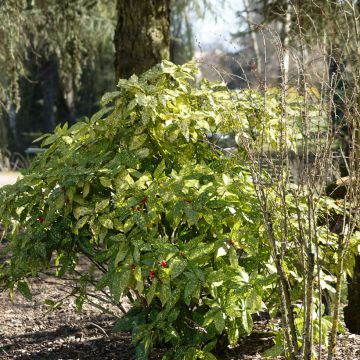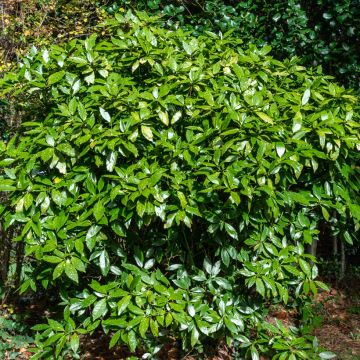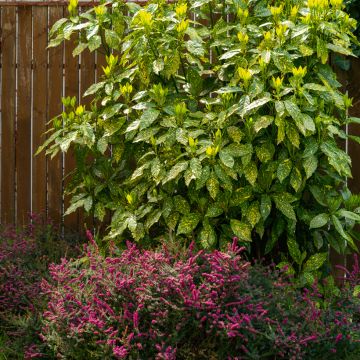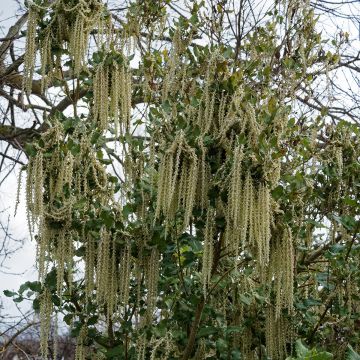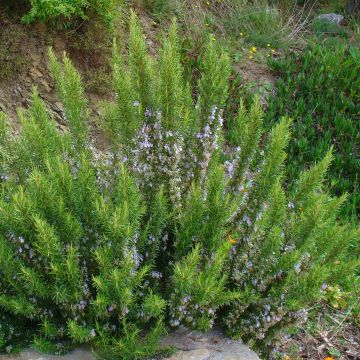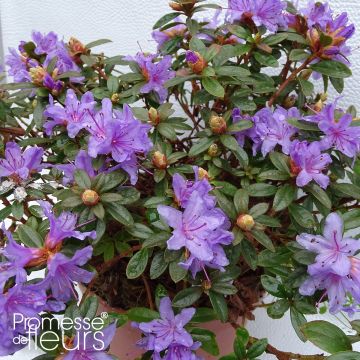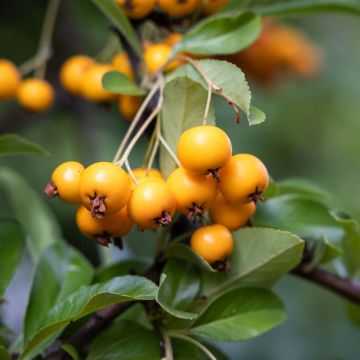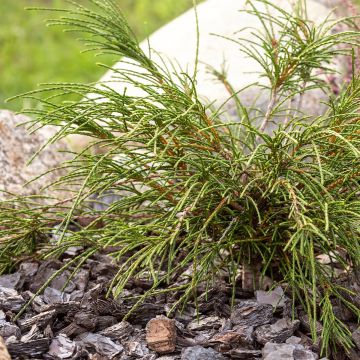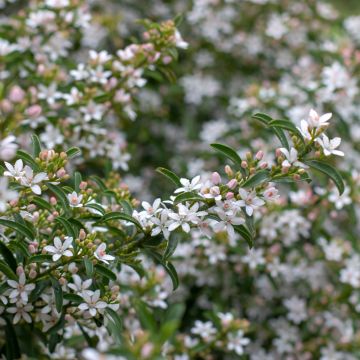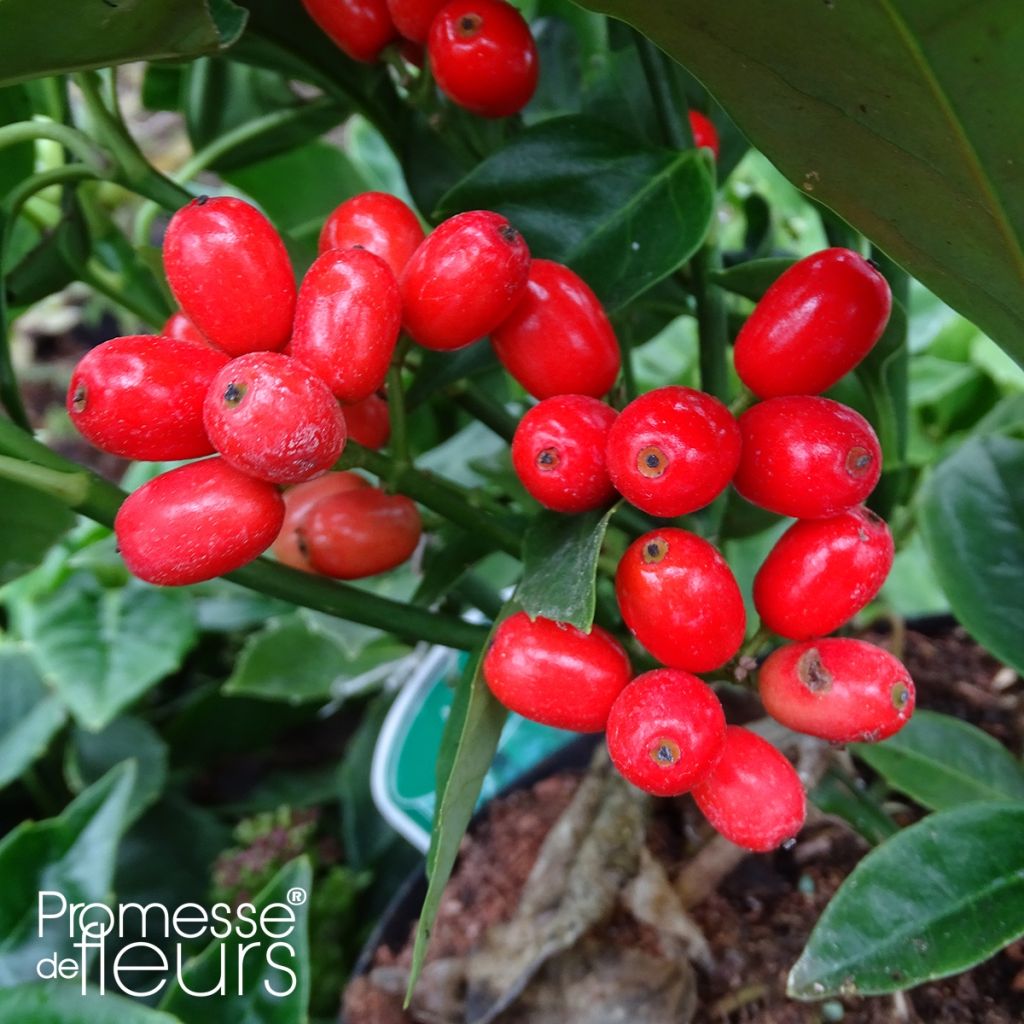

Aucuba Japonica Rozannie- Spotted Laurel
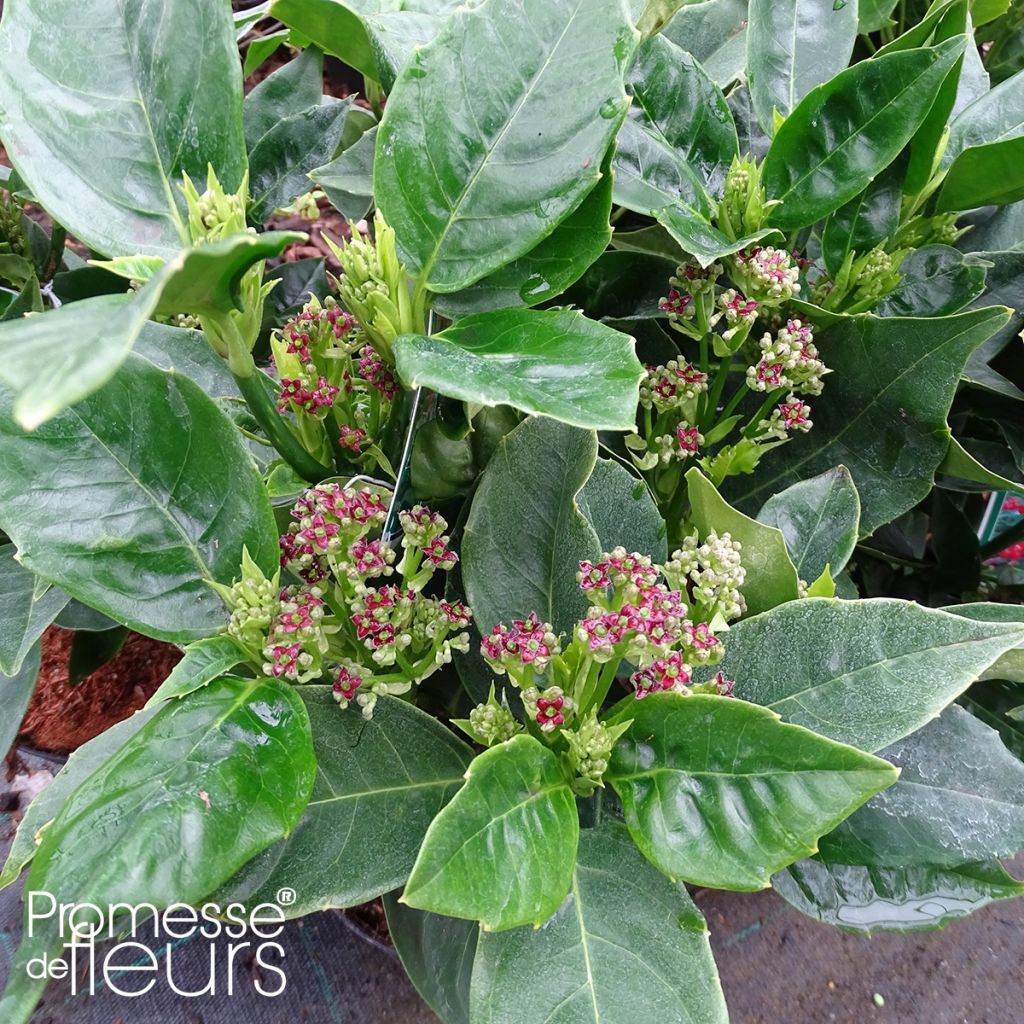

Aucuba Japonica Rozannie- Spotted Laurel
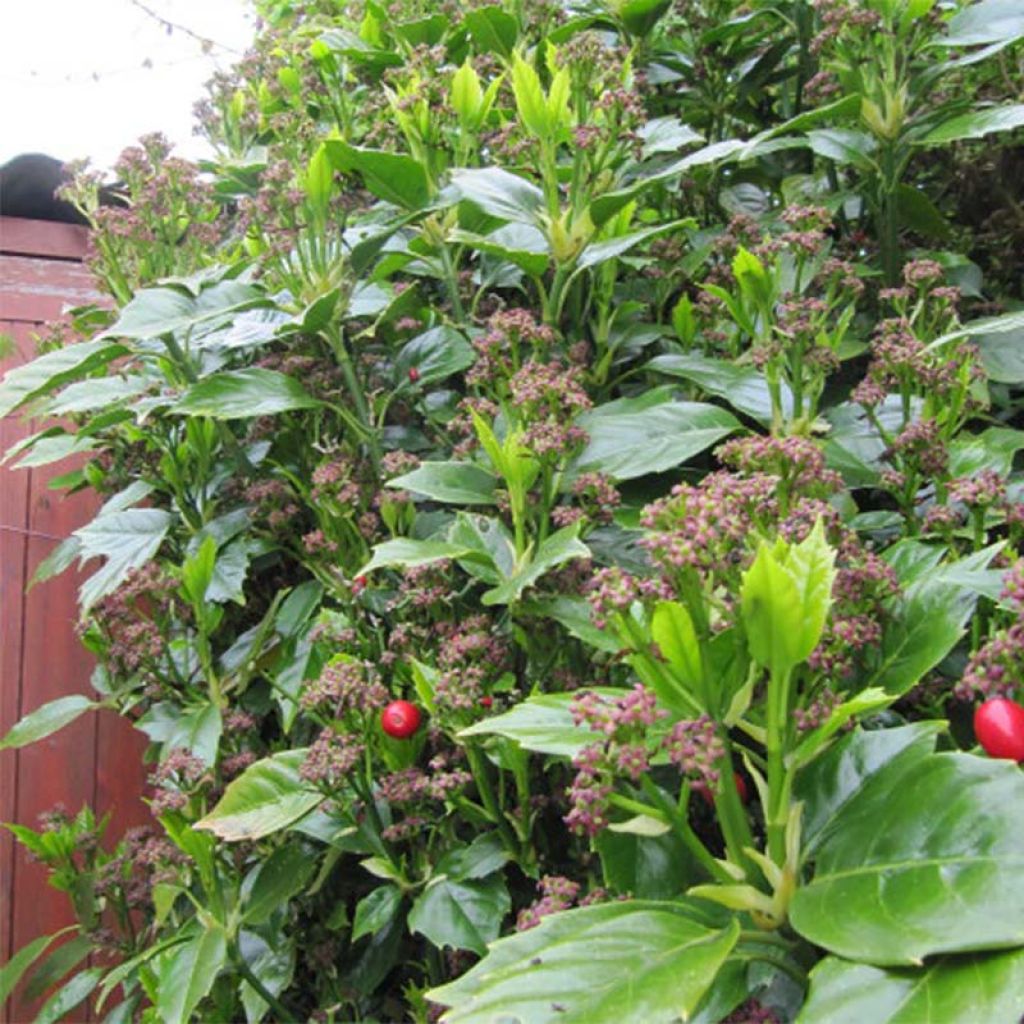

Aucuba Japonica Rozannie- Spotted Laurel
Aucuba Japonica Rozannie- Spotted Laurel
Aucuba japonica Rozannie
Spotted Laurel, Japanese Laurel
Very pretty Aucuba japonica Rozannie, and despite coming from far away, it arrived in good packaging and is very vigorous.
Mireille, 29/09/2025
Special offer!
Receive a €20 voucher for any order over €90 (excluding delivery costs, credit notes, and plastic-free options)!
1- Add your favorite plants to your cart.
2- Once you have reached €90, confirm your order (you can even choose the delivery date!).
3- As soon as your order is shipped, you will receive an email containing your voucher code, valid for 3 months (90 days).
Your voucher is unique and can only be used once, for any order with a minimum value of €20, excluding delivery costs.
Can be combined with other current offers, non-divisible and non-refundable.
Home or relay delivery (depending on size and destination)
Schedule delivery date,
and select date in basket
This plant carries a 24 months recovery warranty
More information
We guarantee the quality of our plants for a full growing cycle, and will replace at our expense any plant that fails to recover under normal climatic and planting conditions.


Would this plant suit my garden?
Set up your Plantfit profile →
Description
The Aucuba japonica 'Rozannie' is a very fruitful variety of Japanese laurel with a naturally compact and bushy habit, particularly well suited to small spaces and container gardening. Its particularly glossy foliage is a perfectly uniform dark green, and in spring it is adorned with small flowers that produce an abundance of large red berries on each hermaphroditic subject. This endearing and very easy to grow shrub is perfect for elegantly dressing shaded areas of a Japanese or classic garden, north/northeast-facing walls, and will make a focal point on a shaded terrace when planted in a large pot.
Native to the Far East, Japan, Taiwan, and eastern China, the Japanese Aucuba is a genuine shade- and cool climate-loving plant, belonging to the cornaceae family. This cousin of dogwoods generally prefers fertile and moist soil, but can tolerate mediocre or even dry soil in summer.
A dwarf, dense shrub with a rounded habit and a rather slow growth rate, the 'Rozannie' variety was awarded the Award of Garden Merit in 2002 in England, the equivalent of a gold medal in the plant world. The plant eventually forms a tall and wide bush of 1 to 1.20 metres, with a superb evergreen deeply indented foliage. The oval and elongated leaves measure about 10 cm (3.9 in) in length and 5 cm (2 in) in width. They are thick, leathery, and glossy, with the young leaves being lighter than their mature siblings. In late spring, Aucuba Rozannie produces beautiful clusters of whitish to reddish flowers, hidden among the foliage. Unlike other Aucuba varieties, the 'Rozannie' is hermaphroditic and self-fertile: a single individual plant is capable of producing fruit without the presence of another nearby. This variety will also pollinate all other Aucuba plants in the garden. The bright red berries are of a good size and persist on the shrub until late winter. They are not edible for humans but are enjoyed by certain birds during the winter.
A shade- and semi-shade-loving, perfectly hardy shrub, the Rozannie Japanese Laurel appreciates fertile, slightly acidic, and moist soil, but can tolerate much less favourable growing conditions, including dry soil, which allows for its adaptation to almost any garden. Very hardy and easy to grow, it does not require any pruning. Use it as a standalone plant, as a small screening hedge, or in the back of shaded borders, but also near an east- or northeast-facing entrance, next to Hydrangea, Mexican Orange Blossom, or Nandina. If your terrace or balcony has a slightly shaded area, it can accommodate this adorable fruit-loaded Rozannie aucuba: it will provide a permanent ornament even in a small space.
Report an error about the product description
Aucuba Japonica Rozannie- Spotted Laurel in pictures
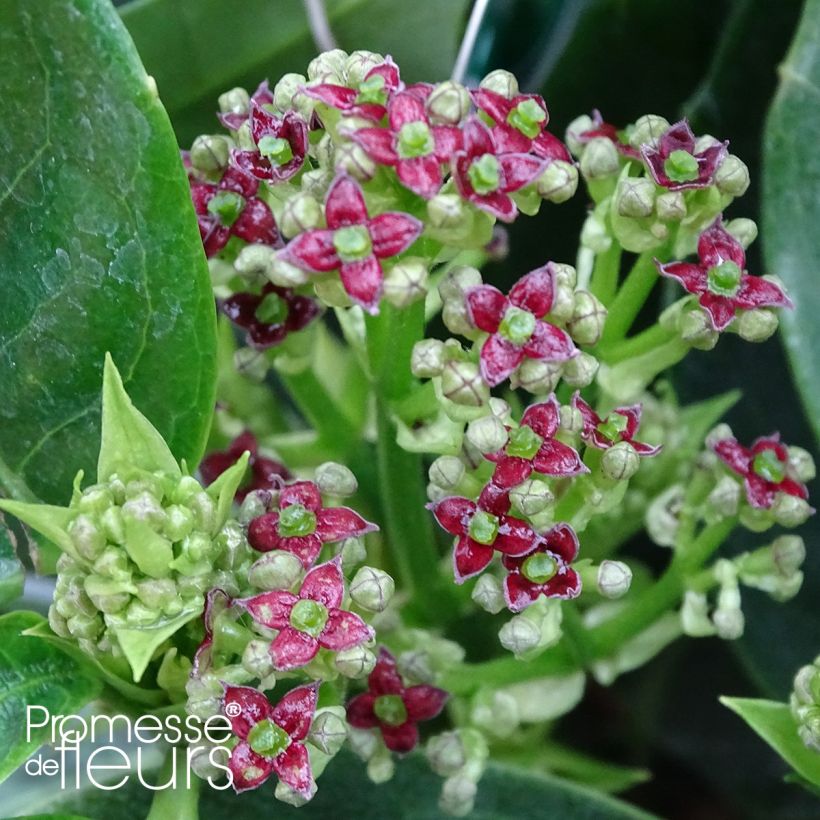

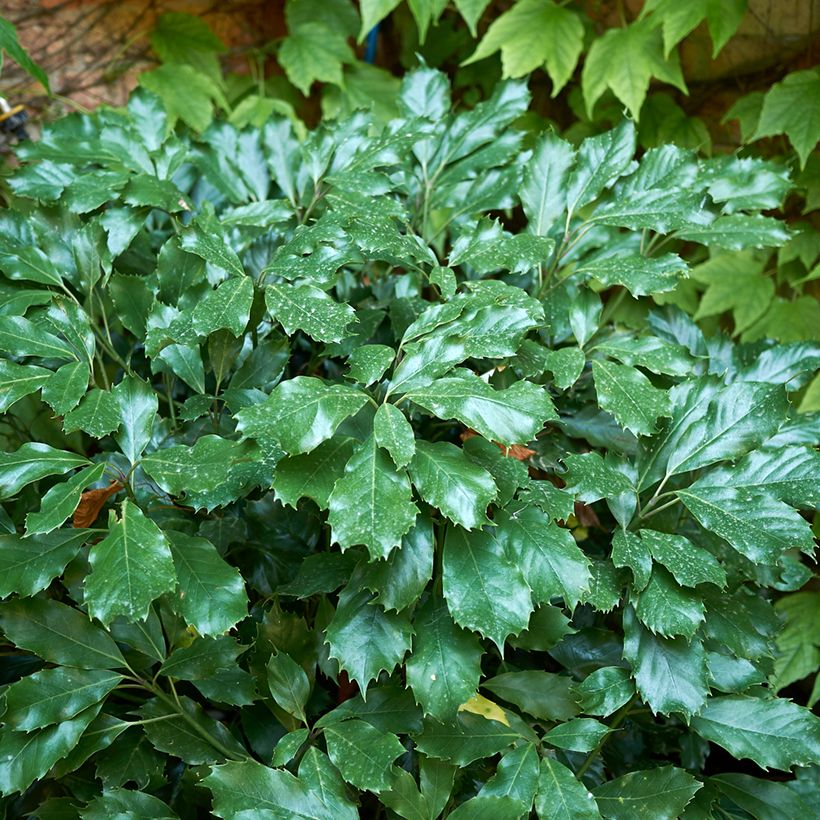

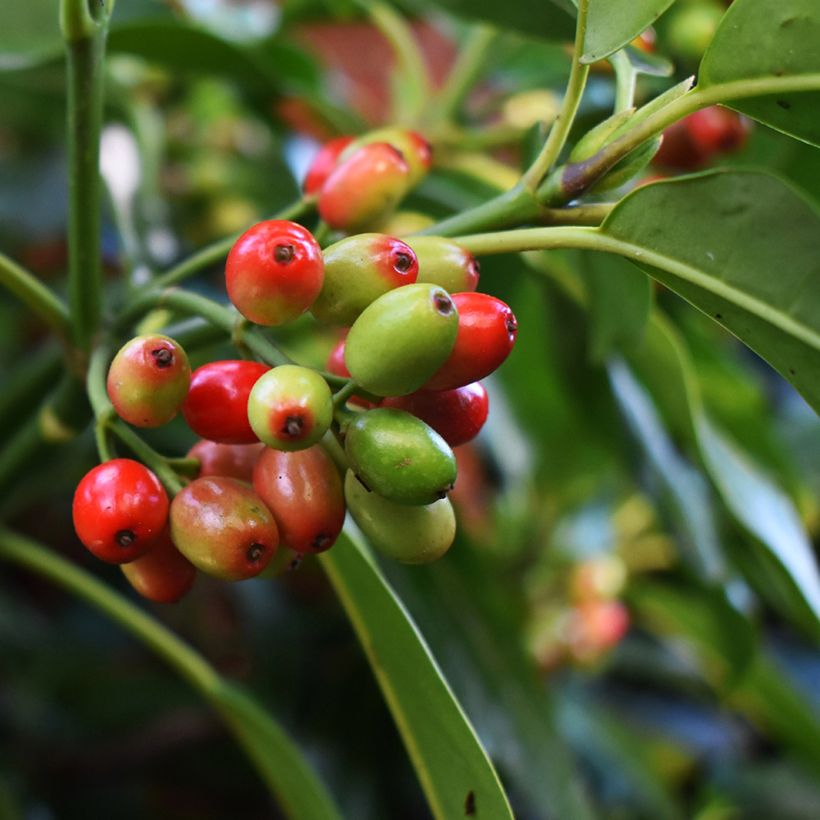

Plant habit
Flowering
Foliage
Botanical data
Aucuba
japonica
Rozannie
Cornaceae
Spotted Laurel, Japanese Laurel
Cultivar or hybrid
Other Aucuba
View all →Planting and care
Grow Aucuba japonica and its varieties in any type of ordinary, preferably fertile, from not too chalky to slightly acidic, and moist, but never waterlogged soil. It tolerates occasional drought and is not perturbed by competition from the roots of old trees. Very hardy in shade and semi-shade, avoid planting it in windy and very sunny areas, which would damage its beautiful foliage.
Planting period
Intended location
Care
-
, onOrder confirmed
Reply from on Promesse de fleurs
Similar products
Haven't found what you were looking for?
Hardiness is the lowest winter temperature a plant can endure without suffering serious damage or even dying. However, hardiness is affected by location (a sheltered area, such as a patio), protection (winter cover) and soil type (hardiness is improved by well-drained soil).

Photo Sharing Terms & Conditions
In order to encourage gardeners to interact and share their experiences, Promesse de fleurs offers various media enabling content to be uploaded onto its Site - in particular via the ‘Photo sharing’ module.
The User agrees to refrain from:
- Posting any content that is illegal, prejudicial, insulting, racist, inciteful to hatred, revisionist, contrary to public decency, that infringes on privacy or on the privacy rights of third parties, in particular the publicity rights of persons and goods, intellectual property rights, or the right to privacy.
- Submitting content on behalf of a third party;
- Impersonate the identity of a third party and/or publish any personal information about a third party;
In general, the User undertakes to refrain from any unethical behaviour.
All Content (in particular text, comments, files, images, photos, videos, creative works, etc.), which may be subject to property or intellectual property rights, image or other private rights, shall remain the property of the User, subject to the limited rights granted by the terms of the licence granted by Promesse de fleurs as stated below. Users are at liberty to publish or not to publish such Content on the Site, notably via the ‘Photo Sharing’ facility, and accept that this Content shall be made public and freely accessible, notably on the Internet.
Users further acknowledge, undertake to have ,and guarantee that they hold all necessary rights and permissions to publish such material on the Site, in particular with regard to the legislation in force pertaining to any privacy, property, intellectual property, image, or contractual rights, or rights of any other nature. By publishing such Content on the Site, Users acknowledge accepting full liability as publishers of the Content within the meaning of the law, and grant Promesse de fleurs, free of charge, an inclusive, worldwide licence for the said Content for the entire duration of its publication, including all reproduction, representation, up/downloading, displaying, performing, transmission, and storage rights.
Users also grant permission for their name to be linked to the Content and accept that this link may not always be made available.
By engaging in posting material, Users consent to their Content becoming automatically accessible on the Internet, in particular on other sites and/or blogs and/or web pages of the Promesse de fleurs site, including in particular social pages and the Promesse de fleurs catalogue.
Users may secure the removal of entrusted content free of charge by issuing a simple request via our contact form.
The flowering period indicated on our website applies to countries and regions located in USDA zone 8 (France, the United Kingdom, Ireland, the Netherlands, etc.)
It will vary according to where you live:
- In zones 9 to 10 (Italy, Spain, Greece, etc.), flowering will occur about 2 to 4 weeks earlier.
- In zones 6 to 7 (Germany, Poland, Slovenia, and lower mountainous regions), flowering will be delayed by 2 to 3 weeks.
- In zone 5 (Central Europe, Scandinavia), blooming will be delayed by 3 to 5 weeks.
In temperate climates, pruning of spring-flowering shrubs (forsythia, spireas, etc.) should be done just after flowering.
Pruning of summer-flowering shrubs (Indian Lilac, Perovskia, etc.) can be done in winter or spring.
In cold regions as well as with frost-sensitive plants, avoid pruning too early when severe frosts may still occur.
The planting period indicated on our website applies to countries and regions located in USDA zone 8 (France, United Kingdom, Ireland, Netherlands).
It will vary according to where you live:
- In Mediterranean zones (Marseille, Madrid, Milan, etc.), autumn and winter are the best planting periods.
- In continental zones (Strasbourg, Munich, Vienna, etc.), delay planting by 2 to 3 weeks in spring and bring it forward by 2 to 4 weeks in autumn.
- In mountainous regions (the Alps, Pyrenees, Carpathians, etc.), it is best to plant in late spring (May-June) or late summer (August-September).
The harvesting period indicated on our website applies to countries and regions in USDA zone 8 (France, England, Ireland, the Netherlands).
In colder areas (Scandinavia, Poland, Austria...) fruit and vegetable harvests are likely to be delayed by 3-4 weeks.
In warmer areas (Italy, Spain, Greece, etc.), harvesting will probably take place earlier, depending on weather conditions.
The sowing periods indicated on our website apply to countries and regions within USDA Zone 8 (France, UK, Ireland, Netherlands).
In colder areas (Scandinavia, Poland, Austria...), delay any outdoor sowing by 3-4 weeks, or sow under glass.
In warmer climes (Italy, Spain, Greece, etc.), bring outdoor sowing forward by a few weeks.






























